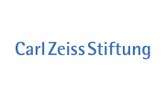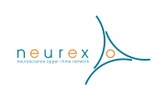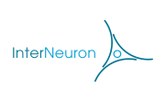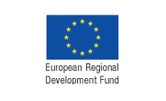Markus Diesmann, Forschungszentrum Jülich: Open cortical models at full density and in real time
| When |
Oct 20, 2020
from 05:15 PM to 06:00 PM |
|---|---|
| Where | Zoom Meeting. Meeting ID and password will be sent with e-mail invitation. |
| Contact Name | Ad Aertsen |
| Add event to calendar |
|
Abstract
Throughout evolution, the cortex has increased in volume from mouse to man by three orders of magnitude, while the architecture at the local scale of a cubic millimeter has largely been conserved in terms of the multi-layered structure and the density of synapses. Local cortical networks are similar, independent of whether an area processes visual, auditory, or tactile information. This dual universality gives us hope that fundamental mechanisms of cortical computation can be discovered. An integrated view of the construction principles, however, is missing.
Our modeling work [1] integrates architectural and axonal tracing data into a multi-scale framework describing one hemisphere of macaque vision-related cortex at cellular resolution. This brain structure contains about one billion neurons, the limit of what supercomputers can simulate today but too costly for routine work. Therefore, our model represents each of the 32 areas by just one microcircuit of about 100,000 neurons. Simulations confirm that brain activity is compatible with in vivo resting-state data on multiple levels from spiking activity to fMRI. Theoretical work and the analysis of experimental data show that, indeed, cortical networks exhibit high-dimensional dynamics invisible to population measures [2].
Code [3] co-designed in collaboration with the Fugaku project enables the use of upcoming exascale supercomputers for brain-scale simulations. Nevertheless, achieving real-time or accelerated speeds as desirable for studies of plasticity challenges conventional algorithms and hardware. Neuromorphic computing offers promising approaches here and has recently overcome the barrier of simulating a full-density model of the microcircuit in real time [4,5,6].
Brain-scale models require the collaboration of researchers because of the amount and heterogeneity of the data that need to be aggregated. Researchers can build on the work of others only if they have access to the executable model description and also to the process of model construction. We are therefore confident that future progress relies on the open digital availability of models and workflows. https://inm-6.github.io/multi-area-model is an example of our exploration of such concepts, and https://youtu.be/YsH3BcyZBcU is a corresponding video tutorial. Finally, installation-free access to the respective software and computer resources investigated in the NEST Desktop project [7] as part of the European ICT infrastructure for neuroscience EBRAINS brings these technoslogies to the classroom and is a contribution to equal opportunities.
This research used resources of the K computer at the RIKEN AICS. Supported by the project Exploratory Challenge on Post-K Computer (Understanding the neural mechanisms of thoughts and its applications to AI) of MEXT. Use of the supercomputers at Jülich was made possible by VSR computation time grant JINB33. The development of NEST is guided by the NEST Initiative. Partial supported by the Human Brain Project through European Union 7th Framework Program grant 604102 (RUP) and EU Horizon 2020 research and innovation program grants 720270 (SGA1), 785907 (SGA2) and 945539 (SGA3), and the Helmholtz Association Initiative and Networking Fund project SO-092 (Advanced Computing Architectures, ACA).
[1] Schmidt M, Bakker R, Shen K, Bezgin G, Hilgetag CC, Diesmann M, van Albada SJ (2018) PLOS Comput Biol 14(10):e1006359
[2] Dahmen D, Grün S, Diesmann M, Helias M (2019) PNAS 116(26):13051-13060
[3] Jordan J, Ippen T, Helias M, Kitayama I, Mitsuhisa S, Igarashi J, Diesmann M, Kunkel S (2018) Front Neuroinform 12:2
[4] Rhodes et al. (2019) Phil Trans R Soc A 378:20190160
[5] Kurth A, Finnerty J, Terhorst D, Pronold J, Senk J, Diesmann M (2020) P 207, Bernstein Conference 2020
[6] Heittmann A, Psychou G, Noll T (2020) P 210 Bernstein Conference 2020
[7] Spreizer S, Senk J, Rotter S, Diesmann M, Weyers B (2020) P 252 Bernstein Conference 2020
About the speaker






